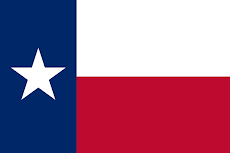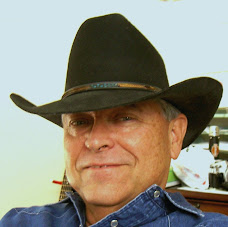
 We used to climb into the loft where we could look down on the live stock from above and remain out of harms way. We could also see the surrounding country side through the loft door. After my grandparents quit farming, except for a big garden and some chickens, the old out buildings stood silent, icons to the age of the family farm. A source of sustenance during the great depression. When I would visit after I was nearly grown, and ask my grandmother how things were going, she would always respond by saying, "the old barn is squatting a little more this year." I never knew how much information was being conveyed in her short little statement on life. Grandpa did keep one horse or mule around to use in his garden. I would always try and ride whatever happened to be available at the time. My experiences with plow horses formed the basis for my poem entitled "Old Trigger".
We used to climb into the loft where we could look down on the live stock from above and remain out of harms way. We could also see the surrounding country side through the loft door. After my grandparents quit farming, except for a big garden and some chickens, the old out buildings stood silent, icons to the age of the family farm. A source of sustenance during the great depression. When I would visit after I was nearly grown, and ask my grandmother how things were going, she would always respond by saying, "the old barn is squatting a little more this year." I never knew how much information was being conveyed in her short little statement on life. Grandpa did keep one horse or mule around to use in his garden. I would always try and ride whatever happened to be available at the time. My experiences with plow horses formed the basis for my poem entitled "Old Trigger". OLD TRIGGER
Trigger was a plow horse
Who, seldom saw a saddle.
I was just a big kid
Who rarely rode a straddle.
I lived in the city,
Away from field and barn.
When school was out I’d visit
Old Trigger on the farm.
I thought I’d try and ride him,
And made a split-bit bridle.
I knew it might not stop him,
But hoped it’d make him idle.
Uncle Barney’s saddle
Was split right down the middle.
It was old, the leather dry,
The cinch strap cracked and brittle.
I saddled Trigger, led him round
Beside an old steel drum.
I stood on top and jumped aboard
He snorted, bucked, and spun.
The summer sun was brutal
Old Trigger soon lost steam.
He plodded down the gravel road,
At plowing pace it seemed.
I tried to make him pick up speed
With kick, and click, and whistle.
Then I turned him toward the barn
And he became a missile.
I rocked back and grabbed the horn,
Pulled hard on cotton reins.
But Trigger galloped faster
As he barreled down the lane.
The barn loomed large before us.
He stopped just past the door.
I became a yard dart,
Flying headfirst to the floor.
When I regained my senses
I made this observation:
That you shouldn't ride a plow horse
For fun or transportation.



